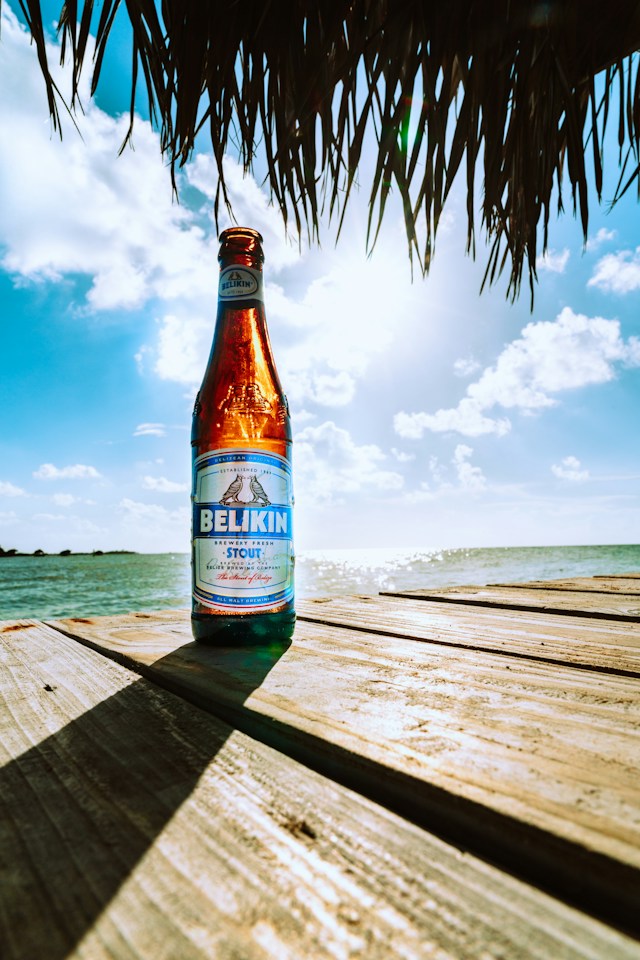There are ATMs across Belize, though these only dispense Belizean dollars and often charge fees and have daily withdrawal limits.
Belize’s currency is unique in that it is pegged to the US dollar at a 2:1 ratio, making cash payments simple and familiar.
Cash
Belize uses the Belize dollar (BZD). It is pegged at two Belize dollars for every one US Dollar. While most hotels, restaurants, and shops accept American money payments, smaller and rural establishments typically prefer cash payments instead.
Credit cards are widely accepted in Belize; however, visitors should note that fees apply when using cards and the exchange rate may be more volatile than in their home countries. Furthermore, it’s wise to notify banks in advance about international travel so as not to receive surprise charges or be alerted of suspicious transactions.
Most hotels, restaurants and shops in Belize accept VISA and MasterCard; some may accept American Express or Diners Club as well. It’s best to carry small denomination bills for easier cashing when cashing them out in smaller towns and villages or when paying taxi and restaurant tabs; larger bills are often considered suspicious as counterfeit and only accept new bills with no tears or marks on them – pen marks or tiny tears won’t do.
ATMs located in larger cities and tourist areas tend to dispense only Belizean currency, often with a daily withdrawal limit and sometimes at rates that fall a couple cents short of official exchange rates.
Hopkins and Dangriga are rural communities, where most cab drivers and shops prefer dealing in cash. If you plan on staying at an upscale resort or hotel, always have some cash on hand for food and beverages, taxi rides and tips.
Bring some cash with you just in case an ATM runs out of funds – most ATMs in the country are found at town centers or airports, with some even providing mobile service directly to hotels or resorts. Also make sure that any cash or negotiable instruments that you bring into the country are declared; failing to do so could incur heavy fines.
Credit Cards
Credit cards in Belize are accepted at hotels and tourist-oriented restaurants; however, it’s advisable to bring some cash for tipping purposes. Smaller businesses and local restaurants typically do not accept cards at all or only use them for larger transactions; some businesses add a service charge for card payments while some refuse Amex or Discover due to higher merchant fees.
Prepaid debit cards can also be an ideal solution in Belize, helping to prevent costly international transaction fees charged by credit cards (known as dynamic currency conversion or DCC fees). VISA or Mastercard issue these prepaid debit cards which offer competitive exchange rates against the Belize dollar and low fees compared to regular bank cards; an example would be Revolut’s Visa-issued debit card which offers attractive Belize dollar exchange rates with no dynamic currency conversion costs or DCC charges attached.
ATMs can be found throughout San Pedro, Caye Caulker, and other tourist areas, with machines attached to banks being the safer choice due to fewer security risks posed by standalone machines which may include card-skimming devices or malware programs that monitor transactions for any sensitive information.
Most banks in Belize offer free ATM withdrawals in-person for both domestic and international cards; however, you should confirm their policies to find out how your specific bank operates. Some local ATMs charge small fees to withdraw money which can prove costly for tourists.
As cash can sometimes be the only acceptable currency, carrying some in your pockets should always be on hand in case you become stranded and cannot access a bank. Small shops, street vendors and public transportation fares usually only accept cash payments; and it’s wise to only bring bills that are undamaged because this helps identify counterfeit bills with more ease and meet local bank’s standards for acceptance of bills.
ATMs
At most restaurants, businesses, hotels and tour companies accepting credit cards, it is still best to bring cash. Many smaller establishments don’t accept cards and those who do charge high transaction fees that make bringing cash more cost-effective. VISA and MasterCard are widely accepted while American Express may not be. Small bills like $1 and $5 bills make cashing them out easier for locals.
The Belize dollar is tied to the US dollar, making it easier for visitors to budget their expenses in Belize. Though most of Belizean economy consists of services, agriculture still plays an integral part of it all. Therefore, it is recommended to exchange your currency before arriving as the official rate is two Belize dollars to one US dollar; however a lively parallel informal market usually gives less favorable exchange rates.
Belize boasts four major banks with ATMs located throughout the country. While these ATMs dispensing Belizean Dollars may charge a nominal withdrawal fee, so be aware of any terms and conditions before using one as these charges can quickly add up. It should also be noted that larger towns and tourist areas typically boast multiple ATMs for added convenience.
Money changers can also be found throughout cities and airports, which may prove helpful for tourists; just be wary of any unlicensed dealers who may not require any form of identification or transaction sheet with personal information filled out correctly. You could also try using an online transfer service like WorldRemit in order to send funds from the U.S. into Belize.
Hopkins Village hotels and resorts may accept Visa payments, but for traveling in other parts of Belize cash is the way to go. Many small businesses only accept cash payments while many national parks and wildlife sanctuaries require admission fees be paid in cash only. You will also want cash for tipping maids, drivers or any workers. Traveler’s checks are useful too but be sure to leave the date and payee fields blank to avoid merchants calling your card provider for approval before depositing into their bank accounts (otherwise they’d have to contact your card company).
Currency exchange
Credit cards may be accepted in many major hotels, restaurants and shops in Belize; however cash payments are always preferred when visiting smaller villages or making souvenir purchases. Furthermore, many merchants will provide you with a small cash discount when paying with cash instead of credit card advances from banks that charge high merchant fees; so cash should always be brought along when visiting Belize.
Belize uses its own currency called the Belize dollar, which is tied to the US dollar at a ratio of two BZ dollars for one US dollar. As a result, many American tourists find it easy and even affordable accommodations such as casa de cambios and tour operators accept US money easily; however some considerations must be taken when exchanging it in Belize due to prices often being listed in Belizean dollars.
If you plan on bringing US bills into Belize, make sure they are in excellent condition. Merchants may reject bills with tears or creases; thus it is wise to bring crisp new bills that do not have creases or tears. Furthermore, keep in mind that some establishments only accept certain denominations; hence it would be wise to bring smaller denominations, such as $1 and $5 bills, along with larger ones like $100 bills for use when making transactions.
Traveler checks aren’t commonly used in Belize, but you can still exchange them at banks or hotels if necessary. Note, though, that you’ll probably pay more when exchanging them than if exchanging cash directly into local currency.
If you want to avoid paying high fees while traveling in Belize, consider getting a prepaid debit card linked directly to your bank account with an integrated foreign exchange rate such as Revolut’s mobile app and multi-currency debit card that features competitive Belize dollar exchange rates and minimal fees – ideal for managing all your funds from one convenient place! Using Revolut is also great way to stay within budget when visiting multiple countries as it helps protect you against hidden charges that might accrue while travelling internationally.




